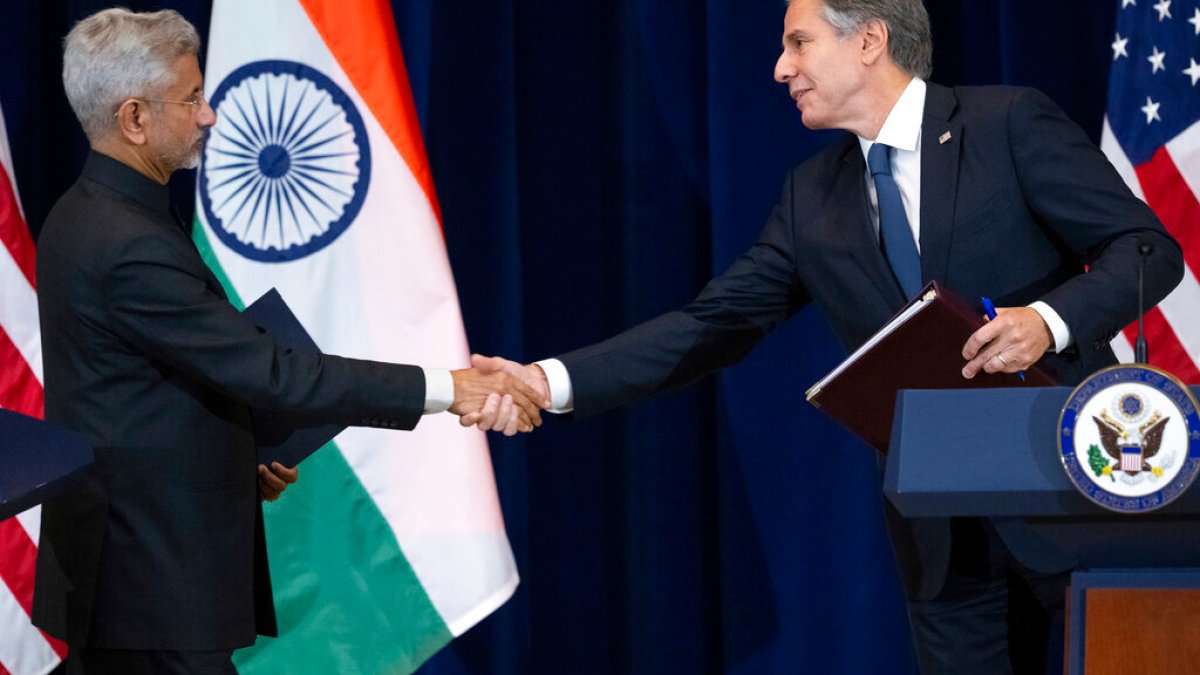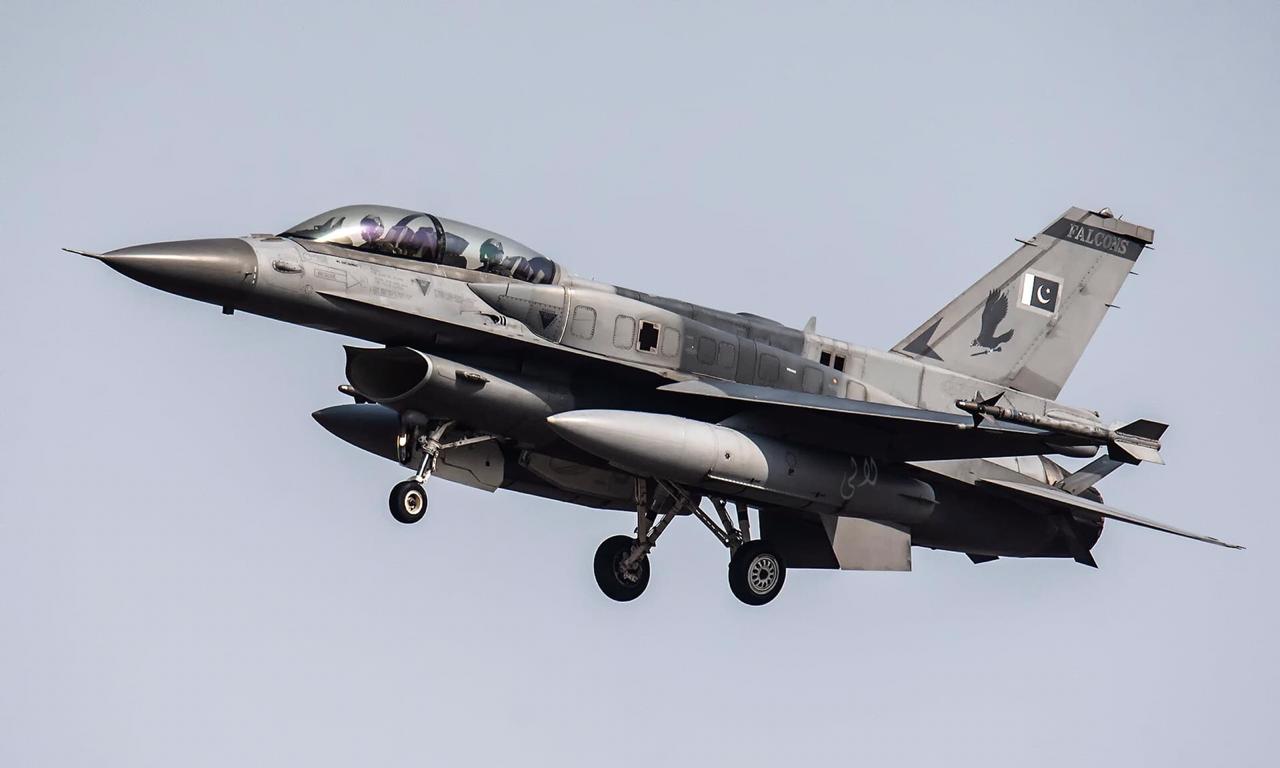Meta Description: The United States has defended its $450 million military sale to Pakistan, citing counterterrorism objectives, despite criticism from India. Here’s what Secretary of State Blinken and EAM Jaishankar said.
Keywords: US Pakistan arms deal, F-16 sale, India Pakistan tensions, Antony Blinken, Subrahmanyam Jaishankar, US India relations, counterterrorism, military diplomacy
Categories: Geopolitics, US Foreign Policy, South Asia
Tags: F-16 sale, US-Pakistan relations, India-US ties, counterterrorism, Antony Blinken, Jaishankar
Slug: us-defends-f16-sale-pakistan-blinken-jaishankar
Internal Links:
- India-Pakistan Ceasefire & Operation Sindoor
- Risk of Nuclear War Between India and Pakistan
- Deepening US-India Strategic Relations in 2025
On September 27, 2022, US Secretary of State Antony Blinken defended the $450 million F-16 fighter jet sustainment deal with Pakistan, following sharp criticism from India. Speaking at a press conference alongside India’s External Affairs Minister Subrahmanyam Jaishankar in Washington, Blinken emphasized that the deal was aimed at supporting Pakistan’s counterterrorism capabilities.
“These are not new planes, new systems, new weapons. It’s sustaining what they have,” Blinken said. He added, “Pakistan’s program bolsters its capability to deal with terrorist threats emanating from Pakistan or the region. It’s in no one’s interest that those threats go forward with impunity.”
The statement came a day after Blinken held talks with Pakistan’s Foreign Minister Bilawal Bhutto Zardari, reaffirming US engagement with both South Asian rivals.
India Pushes Back Against US Logic
Jaishankar, without directly confronting Blinken during the press meet, had expressed skepticism earlier, stating: “For someone to say, I’m doing this because it’s for counter-terrorism, when you’re talking of an aircraft like the F-16, everybody knows where they are deployed.” He hinted that the fleet is largely configured against India rather than for internal security operations in Pakistan.

India has long accused Pakistan of harboring terrorist groups such as Jaish-e-Mohammed (JeM) and Lashkar-e-Taiba (LeT), which were targeted during India’s Operation Sindoor in May 2025.
India’s Strategic Autonomy in Defense Procurement
Responding to growing geopolitical tensions and US pressure over Russian arms deals, Jaishankar reiterated India’s position: “India will exercise a choice that we believe is in our national interest.” While India continues to buy arms from Russia, it has also strengthened ties with the US, France, and Israel.
According to the Stockholm International Peace Research Institute (SIPRI), India is one of the world’s largest arms importers and has diversified its portfolio amid ongoing border disputes with China and Pakistan.
US Diplomacy Balances Between Rivals
Despite tensions, the US continues to engage both nations. State Department spokesperson Ned Price stated that “the relationship we have with India stands on its own; the relationship we have with Pakistan stands on its own.”
This delicate balancing act has often placed the US in a challenging position, especially when strategic partnerships with India are seen as part of Washington’s broader efforts to counter China in the Indo-Pacific region.

Human Rights, Ukraine War, and Common Values
During the same briefing, Blinken also touched on shared democratic values and freedom of expression. While indirectly referencing India’s record on religious freedom, he emphasized: “Our democracies are stronger when they respect universal human rights.”
Jaishankar responded by noting that India’s democracy has evolved from its “history, tradition, and societal context” and warned against “vote bank politics” defining democratic quality.
On the global stage, both countries have found common ground, such as India’s quiet diplomacy in pushing for Black Sea grain exports during the Ukraine conflict. Prime Minister Narendra Modi‘s famous remark to Vladimir Putin that “this is not an era of war” was well received in Washington.
Conclusion
The US arms deal with Pakistan has revived strategic unease in New Delhi, but Washington insists it is essential for regional counterterrorism. With India pursuing an increasingly multi-aligned foreign policy and the US balancing its relations across South Asia, the Indo-Pacific’s strategic calculus continues to evolve.
For more on the strategic implications of this deal, see our analysis on the deepening US-India defense partnership.